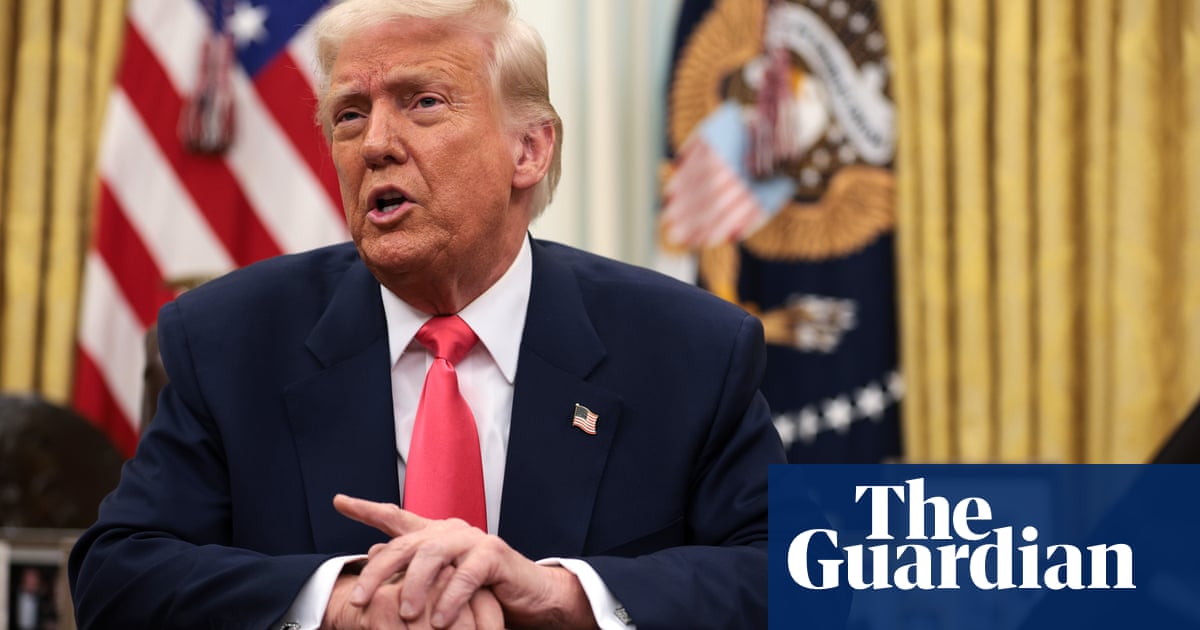A federal judge on Friday permanently struck downDonald Trump’s executive order that targeted the firm Perkins Coie, which once worked with his 2016 presidential election rival Hillary Clinton, after declaring in an extraordinary ruling that the order was unconstitutional and unlawful.
The decision from the US district judge Beryl Howell, which criticized virtually every aspect of the order in a 102-page opinion, marks a major victory for Perkins Coie and could be used as a model by other judges weighing cases brought by other law firms in similar orders.
“No American president has ever before issued executive orders like the one at issue,” she wrote, adding: “In purpose and effect, this action draws from a playbook as old as Shakespeare, who penned the phrase: ‘The first thing we do, let’s kill all the lawyers.’”
Howell found in particular that the executive order violated the first, fifth and sixth amendments and permanently barred its implementation. She also raised alarm at other law firms that opted to strike deals with theTrump administrationrather than face the possibility of being targeted themselves.
Perkins Coie was the first law firm to end up in the crosshairs ofTrump’s executive ordersaimed at law firms that terminated any government contracts and barred federal employees from engaging with its attorneys or allowing them access to federal buildings, including courthouses.
The administration said at the time that Perkins Coie was a national security risk principally because it had hired Fusions GPS on behalf of the Clinton presidential campaign in 2016, which produced the “dossier” that pushed discredited claims about Trump’s connections to Russia.
Howell rejected that contention outright in her decision, citing Trump’s own attacks against Perkins Coie and the stunning breadth of everyone from the attorneys to the assistants at the firm facing restrictions as evidence that the executive order was retaliatory.
The provision in the executive order that barred its lawyers from entering federal government buildings and engaging with government employees in particular was not speculative, Howell said, in part because the government had cancelled meetings within days of it being issued.
The attempt by the administration to argue that it was limited to only when such access would threaten national security or in the national interest of the US was unconvincing, Howell said, since the executive order itself said working with Perkins Coie was not in the national interest.
“That is unconstitutional retaliation and viewpoint discrimination, plain and simple,” she wrote.
Howell also rebuked Trump over the requirement in the executive order for any private companies that had government contracts to disclose whether they had ever worked with Perkins Coie, regardless of whether it was related to their government contract work.
The requirement, Howell suggested, was at odds with the first amendment protection to freely use any lawyer, since the need to disclose any possible work with Perkins Coie could mean firms that contracted with the government would be dissuaded from using them at all.
And the order was unlawfully broad, Howell said, since it required disclosure “whether the contract is for crucial classified military equipment costing millions of dollars per item delivered or for paper clips costing pennies, and no matter whether the disclosure of association with plaintiff had anything to do with a government contract”.
The Trump administration is almost certain to appeal to the US court of appeals for the DC circuit. The ruling comes weeks after Howell previously issued atemporary restraining orderthat blocked Trump’s order from taking effect after a hearing last month in federal district court in Washington.
That temporary injunction followed an emergency lawsuit filed by Perkins Coie on the advice of Williams and Connolly, another elite firm in the nation’s capital known for taking cases against government overreach.
Perkins Coie had initially reached out to the firm Quinn Emanuel, which has previously represented people in Trump’s orbit, including Elon Musk, the Trump Organization itself, and the New York mayor, Eric Adams, whose corruption charges were dropped by the justice department last month.
But Quinn Emanuel declined to take Perkins Coie as a client, as its top partners decided not to become involved in a politically sensitive issue that could make themselves a target by association just as they have been on the rise as a power center in Washington DC.
While other law firms discussed whether to file amicus briefs or declarations supporting Perkins Coie, the firm was ultimately taken on by Williams and Connolly. They advised Perkins Coie to ask for an emergency hearing and temporary restraining order, both of which Howell granted.
